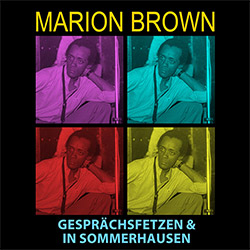
Working with German jazz and "third stream" musician, vibraphonist & composer Gunter Hampel, New York alto saxophonist Marion Brown is heard in two live recordings from 1968 & 1969 in Munchen, Germany and Wurzburg, in quintet and sextet configurations with superb supporting musicians including Steve McCall (drums), Ambrose Jackson (trumpet), Daniel Laloux (bass) and Jeanne Lee (voice).
In Stock
Quantity in Basket: None
Log In to use our Wish List
Shipping Weight: 5.00 units
EU & UK Customers:
Discogs.com can handle your VAT payments
So please order through Discogs
Sample The Album:
Marion Brown-alto saxophone
Buschi Niebergall-bass
Daniel Laloux-bass, percussion
Steve McCall-drums, percussion
Ambrose Jackson-trumpet
Gunter Hampel-vibraphone, bass clarinet, percussion
Jeanne Lee-voice, percussion
Click an artist name above to see in-stock items for that artist.
UPC: 885513121929
Label: Moosicus
Catalog ID: M1219-2
Squidco Product Code: 33950
Format: CD
Condition: New
Released: 2023
Country: Germany
Packaging: Jewel Case
Tracks 1 to 5 recorded live at Modernes Theater, in Munchen, Germany, on September 20th, 1968, by Heinz Sommerfeld.
Tracks 6 to 11 recorded live at "Bayerisches Staatskonservatorium der Musik", in Wurzburg, Germany, on May 17th, 1969, by Werner Berndsen.
"Historical live recordings from 1968 and 1969. Alto saxophonist Marion Brown was an initially underrated hero of the jazz avant-garde. It was only after he moved from Atlanta to New York and joined John Coltrane that audiences and critics took notice. Dedicated to discovering the far-reaching possibilities of improvisational expression, Brown possessed a truly lyrical voice. In the early seventies, he played with Anthony Braxton, Andrew Cyrille, Bennie Maupin, Jeanne Lee, and Chick Corea, among others.
On this recording, he was accompanied by the German jazz musician Gunter Hampel (composer, vibraphonist, saxophonist, flutist, pianist, and bass clarinetist). His son Djinji remembers his father by saying, "The way he played sounded like his speaking voice, the way he held his horn reminded me of the way he held my hand, the way he walked was in the same rhythm as his songs, and then everything made sense. His music was first and foremost who he was. It was the purest expression of his soul, and everything he did had the same gentle power as his music. He was truly one with his art; there was no separation between the two."-Moosicus
Artist Biographies
• Show Bio for Marion Brown "Marion Brown (September 8, 1931 - October 18, 2010) was an American jazz alto saxophonist and ethnomusicologist. He is most well known as a member of the 1960s avant-garde jazz scene in New York City, playing alongside musicians such as John Coltrane, Archie Shepp, and John Tchicai. He performed on Coltrane's landmark 1965 album Ascension. Brown was born in Atlanta, in 1931. He joined the Army in 1953 and in 1956 went to Clark College to study music. In 1960 Brown left Atlanta and studied pre-law at Howard University for two years. He moved in 1962 to New York, where he befriended poet Amiri Baraka and musicians including Ornette Coleman, Archie Shepp, Sun Ra, Pharoah Sanders, Paul Bley, Clifford Thornton, and Rashied Ali. He appeared on several important albums from this period, such as Shepp's Fire Music and Attica Blues, but most notably John Coltrane's Ascension. In 1967, Brown travelled to Paris, where he developed an interest in architecture, Impressionistic art, African music and the music of Erik Satie. In the late 1960s, he was an American Fellow in Music Composition and Performance at the Cité Internationale des Arts in Paris. Around 1970, he provided the soundtrack for Marcel Camus' film Le temps fou, a soundtrack featuring Steve McCall, Barre Phillips, Ambrose Jackson and Gunter Hampel. Brown returned to the US in 1970, where he felt a newfound sense of creative drive. He moved to New Haven, Connecticut, to serve as a resource teacher in a child study center in the city's public school system until 1971. He composed and performed incidental music for a Georg Büchner play, Woyzeck. In 1971, Brown was an assistant professor of music at Bowdoin College in Brunswick, Maine, a position he held until he attained his Bachelor's degree in 1974. In addition to this role, he held faculty positions at Brandeis University (1971-74), Colby College (1973-74), and Amherst College (1974-75), as well as a graduate assistant position at Wesleyan University (1974-76). Brown earned a Master's degree in ethnomusicology from Wesleyan in 1976. His master's thesis was entitled "Faces and Places: The Music and Travels of a Contemporary Jazz Musician". Throughout his tenure as an educator, Brown continued to compose, perform and record. Notable recordings during this period included Afternoon of a Georgia Faun for the ECM label in 1970 and three albums for the Impulse! label between 1973 and 1975. He played alto saxophone on the composition "Bismillahi 'Rrahman 'Rrahim" from Harold Budd's 1976 release The Pavilion of Dreams, a piece originally written by Budd for Brown's Vista LP, released the previous year. In 1972 and 1976, Brown received grants from the National Endowment for the Arts, which he used to compose and publish several pieces for solo piano, one of which was based on the poetry of Jean Toomer in his book Cane. He also transcribed some piano and organ music by Erik Satie including his Messe des pauvres and Pages mysterieuses, and arranged the composer's Le Fils des étoiles for two guitars and violin. In 1981, Brown began focusing on drawing and painting. His charcoal portrait of blues guitarist Blind Lemon Jefferson was included in a New York City Kenkeleba Gallery art show called Jus' Jass, which also included works by artists such as Romare Bearden, Charles Searles and Joe Overstreet. By the 2000s, Brown had fallen ill; due to a series of surgeries and a partial leg amputation, Brown resided for a time in a nursing home in New York. By 2005 he had moved to an assisted living facility in Hollywood, Florida, where he died in 2010, aged 79." ^ Hide Bio for Marion Brown • Show Bio for Buschi Niebergall "Buschi Niebergall (July 18, 1938 - January 9, 1990) was a German free jazz musician. His given name was Hans-Helmut, and late in life, his friends called him Johannes. Born in the city of Marburg into a family of academics (his father was a professor of theology and temporarily rector of the University of Marburg), Niebergall enrolled in medical school. Playing acoustic guitar, he got in contact with other musicians and quit his studies. As double-bass player Niebergall became co-founder of several of the first and most influential Free Jazz formations of Germany during the mid-1960s. Gunter Hampels quintet "Heartplants" and "Voices" by the Manfred Schoof quintet are two excellent examples of this independent European free jazz development. A founding member of the Globe Unity Orchestra since 1966, Niebergall collaborated with many musicians playing freely improvised music, including Peter Brötzmann, Don Cherry, Alfred Harth, Evan Parker, Alexander von Schlippenbach, Irène Schweizer, John Tchicai. During the early 1970s he played in Albert Mangelsdorff's various quartets and quintets. After 1980 he chose a life in isolation in Frankfurt a.M., with the exception of occasional stints within a "Jazz und Lyrik" project." ^ Hide Bio for Buschi Niebergall • Show Bio for Daniel Laloux Daniel Laloux is a French actor, musician and author, known for his work with Daevid Allen's Gong. ^ Hide Bio for Daniel Laloux • Show Bio for Steve McCall "Steve McCall (September 30, 1933 - May 24, 1989) was an American jazz drummer. McCall was born in Chicago, Illinois, United States. As a young child, he "experienced a musical epiphany" when he was given an opportunity to play a drum in Chicago's annual Bud Billiken Parade. As a teenager, he attended Englewood High School in Chicago and studied music theory, Latin percussion, and classical percussion. After high school, he left to join the U. S. Air Force, then, in 1954, returned to Chicago, where he took a job in the airline industry. He soon bought his first drum set and began using free air travel passes to study with drummer Charles "Specs" Wright in Philadelphia. He also began freelancing, playing with Lucky Carmichael, Booker Ervin, Charles Stepney, Gene Shaw, and Ramsey Lewis. In 1961, McCall befriended pianist Muhal Richard Abrams, and began playing with Abrams' Experimental Band, which brought him into contact with like-minded Chicago-based musicians. Over the coming years the two also played in a trio format with multi-instrumentalist Donald Rafael Garrett, and well as in a quintet which included Garrett plus saxophonists Gene Dinwiddie and Roscoe Mitchell. McCall went on to become one of the founders of the AACM, established in 1965, initially serving as treasurer. During the mid-1960s, he continued to freelance with musicians and groups in a wide range of styles, from blues to bop to free jazz. In 1966, he participated in the recording of Joseph Jarman's debut album Song For. In 1967, McCall moved to Amsterdam, the first AACM member to visit Europe, and was soon playing with expatriates such as Don Byas and Dexter Gordon. In 1968, he began playing in a group led by Marion Brown, featuring Gunter Hampel, Ambrose Jackson, and Barre Phillips. McCall would go on to record five albums with Brown. That year, McCall moved to Paris and joined an existing group whose members were Anthony Braxton, Leo Smith, and Leroy Jenkins. (The Braxton/Smith/Jenkins trio had recently completed work on the album 3 Compositions of New Jazz). Together, the four recorded the albums Anthony Braxton and This Time... for BYG Actuel. During his stay in Paris, McCall served as a link between the first generation of European free jazz musicians and members of the AACM, playing and recording with Willem Breuker, the Instant Composers Pool, John Surman, Tony Oxley, and Gunter Hampel. Notable albums recorded during this time included Hampel's The 8th Of July 1969, which also featured Braxton and Jeanne Lee, as well as Gittin' to Know Y'All, recorded during the 1969 Baden-Baden Free Jazz Meeting. In 1970, McCall moved back to Chicago. In May of that year, he reunited with Braxton, Smith and Jenkins, forming a group which also included Muhal Richard Abrams and Richard Davis, and which became known as the Creative Construction Company. The group performed a concert at the Peace Church in New York City, a recording of which was released in two volumes. That summer, McCall also recorded the album The Chase! with Dexter Gordon and Gene Ammons. The following year, he played with Henry Threadgill and Fred Hopkins in a short-lived trio called Reflection. The group would later reunite under the name Air. In 1972, McCall played with both the Fred Anderson quartet and the Muhal Richard Abrams Sextet. In 1974, McCall moved back to Europe. He then returned to the United States in 1975, moving to New York City and reuniting with Threadgill and Hopkins. The trio, now called Air, would go on to record eleven albums, with McCall participating in all but the last two. During the mid to late 1970s, McCall also performed and recorded with Abrams, Billy Bang, Arthur Blythe, Ted Curson, Chico Freeman, Cecil McBee, and Butch Morris. During the early 1980s, he recorded a number of albums with David Murray, and in the mid-1980s, he joined Cecil Taylor's group, recording Olu Iwa, and worked with Roscoe Mitchell again, recording The Flow of Things. McCall died in 1989 at South Shore Hospital in Chicago. Despite his lengthy career, he never recorded a session as a leader. However, McCall received equal billing with tenor sax player Fred Anderson on the posthumously released Vintage Duets album, recorded in 1980 and issued in 1994." ^ Hide Bio for Steve McCall • Show Bio for Ambrose Jackson Ambrose Cyprian Jackson Jr. (Born: June 26, 1940 in Washington, D.C., died: November 14, 2009 in Hawthorne, New York) was an American trumpeter, played, among other with: Marion Brown, Steve Lacy, Duke Ellington, Alan Silva and Otis Redding. He was a member of the Anthony Braxton Creative Music Orchestra, and Charlie Persip And Superband. ^ Hide Bio for Ambrose Jackson • Show Bio for Gunter Hampel "Gunter Hampel (born 31 August 1937) is a German jazz vibraphonist, clarinettist, saxophonist, flautist, pianist and composer born in Göttingen, Germany, perhaps best known for his album The 8th of July 1969 that included fellow musicians Anthony Braxton, Willem Breuker and Jeanne Lee. Jeanne, now deceased, was Gunter's wife. Hampel became dedicated to free jazz in the 1960s, developing his own record label (Birth Records), and worked with a variety of artists over the years, including John McLaughlin, Muruga Booker, Laurie Allan, Udo Lindenberg, Pierre Courbois and Perry Robinson. In the 1970s he also formed the Galaxie Dream Band." ^ Hide Bio for Gunter Hampel • Show Bio for Jeanne Lee "Jeanne Lee (January 29, 1939 - October 25, 2000) was an American jazz singer, poet and composer. Best known for a wide range of vocal styles she mastered, Lee collaborated with numerous distinguished composers and performers who included Gunter Hampel, Ran Blake, Carla Bley, Anthony Braxton, Marion Brown, Archie Shepp, Mal Waldron, and many others. Jeanne Lee was born in New York City. Her father S. Alonzo Lee was a concert and church singer whose work influenced her at an early age. She was educated at the Walden School (a private school), and subsequently at Bard College, where she studied child psychology, literature and dance. During her time at Bard she created choreography for pieces by various classical and jazz composers, ranging from Johann Sebastian Bach to Arnold Schoenberg. In 1961 she graduated from Bard College with a B.A. degree. That year she performed as a duo at the Apollo Theater's Amateur Night contest with pianist Ran Blake, a fellow Bard alumnus, and after winning made her first record, The Newest Sound Around. The album gained considerable popularity in Europe, where Lee and Blake toured in 1963, but went unnoticed in the US. At this point, Lee's major influence was Abbey Lincoln. During the mid-1960s Lee was exploring sound poetry, happenings, Fluxus-influenced art, and other multidisciplinary approaches to art. She was briefly married to sound poet David Hazelton, and composed music for the sound poetry by poets such as Dick Higgins and Alison Knowles, becoming active in the California art scene of the time. In the late 1960s she returned to the jazz scene and started performing and recording, quickly establishing herself as one of the most distinctively independent and creative artists in the field. Already a few years after her return she had a major role in Carla Bley's magnum opus, Escalator over the Hill (1971), and recorded albums with eminent musicians including Archie Shepp and Marion Brown. In 1967, while in Europe, Lee began a long association with vibraphonist and composer Gunter Hampel, whom she eventually married. They had a son, Ruomi Lee-Hampel, and a daughter, Cavana Lee-Hampel. In 1976 she represented the African-American spiritual musical tradition in John Cage's Apartment House 1776, which was composed for the U.S. Bicentennial. The experience inspired Lee to devote more attention to her composing, and create extended works. The immediate result was Prayer for Our Time, a jazz oratorio. Lee continued to perform and make recordings until her death in 2000, recording for labels such as Birth, BYG Actuel, JCOA, ECM, Black Saint/Soul Note, OWL and Horo. She sang on a large number of albums by Gunter Hampel. In her late years, she ran the Jeanne Lee Ensemble, which performed a fusion of poetry, music and dance, and collaborated and toured with pianist Mal Waldron. Lee was also active as educator. She received a MA in Education from New York University in 1972 and taught at various institutions both in the US and in Europe. She published a number of short features on music for Amsterdam News and various educational writings, including a textbook on the history of jazz music for grades four through seven. Lee died from cancer in 2000 in Tijuana, Mexico. She was survived by her husband and children." ^ Hide Bio for Jeanne Lee
11/18/2024
Have a better biography or biography source? Please Contact Us so that we can update this biography.
11/18/2024
Have a better biography or biography source? Please Contact Us so that we can update this biography.
11/18/2024
Have a better biography or biography source? Please Contact Us so that we can update this biography.
11/18/2024
Have a better biography or biography source? Please Contact Us so that we can update this biography.
11/18/2024
Have a better biography or biography source? Please Contact Us so that we can update this biography.
11/18/2024
Have a better biography or biography source? Please Contact Us so that we can update this biography.
11/18/2024
Have a better biography or biography source? Please Contact Us so that we can update this biography.
Track Listing:
1. Gesprachsfetzen 14:59
2. Exhibit A 2:54
3. Babudah 7:26
4. Tomorrow Is The Beginning Of The End Of Yesterday 3:23
5. Aba 6:30
6. Dance No. 1 11:03
7. Exhibit B 3:33
8. The Sound Of A Song 7:57
9. alipieros Midnight Theatre 8:29
10. II Ne Chant Pas 6:16
11. Dance No. 2 8:12
Improvised Music
Jazz
Free Improvisation
Song Based Music
NY Downtown & Metropolitan Jazz/Improv
European Improvisation, Composition and Experimental Forms
Sextet Recordings
Staff Picks & Recommended Items
Search for other titles on the label:
Moosicus.


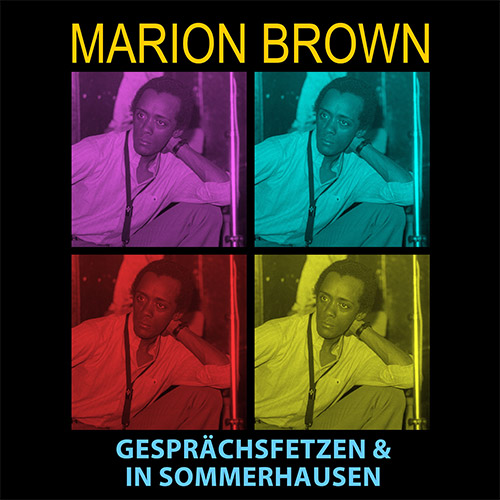


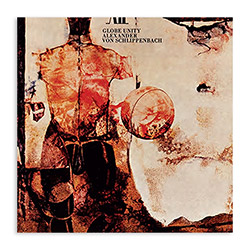
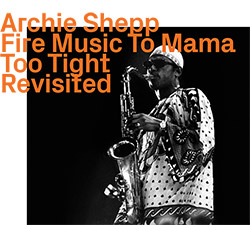

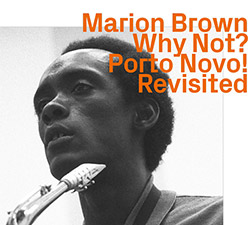
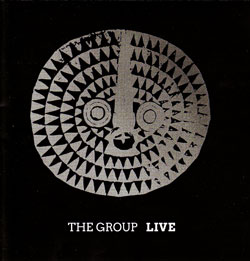
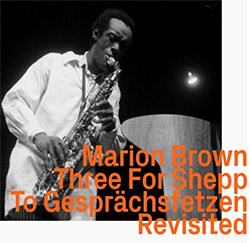
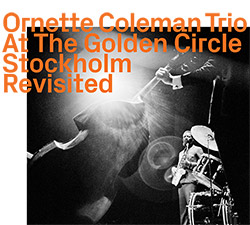

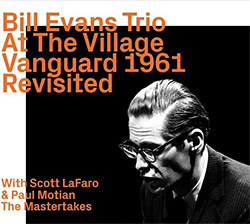
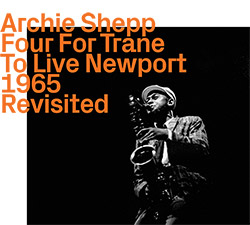
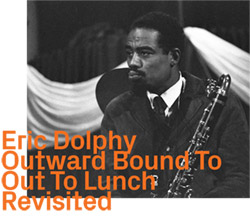





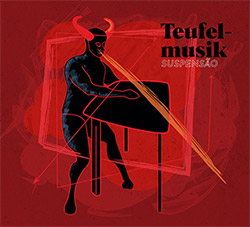



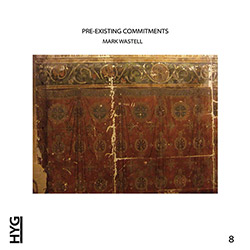















![Barker / Parker / Irabagon: Bakunawa [VINYL]](https://www.teuthida.com/productImages/misc4/35533.jpg)
![Blaser, Samuel / Marc Ducret / Peter Bruun: Dark Was The Night, Cold Was The Ground [VINYL 10-inch]](https://www.teuthida.com/productImages/misc4/35492.jpg)










![Warren, Kenny (Warren / Hoffman / Ellman): Sweet World [VINYL]](https://www.teuthida.com/productImages/misc4/35451.jpg)


![Blake, Ran / Dave Knife Fabris: Live Amsterdam 2006, First Visit [CD + POSTCARDS]](https://www.teuthida.com/productImages/misc4/35275.jpg)
![Sanna, Claudio: Compositori Sardi Contemporanei II [2 CDs]](https://www.teuthida.com/productImages/misc4/35317.jpg)












![Nevai, Nandor: <<The PRICE of FRONTIER>> Book 1: FULK [BOOK + 4 CDs]](https://www.teuthida.com/productImages/misc4/35464.jpg)
![Nevai, Nandor: <<The PRICE of FRONTIER>> Book 2: MARTIAL [BOOK + 4 CDs]](https://www.teuthida.com/productImages/misc4/35465.jpg)
![Nevai, Nandor: <<The PRICE of FRONTIER>> Book 3: JASSOM [BOOK + 4 CDs]](https://www.teuthida.com/productImages/misc4/35466.jpg)
![Nevai, Nandor: <<The PRICE of FRONTIER>> Book 4: HARD-WON [BOOK + 4 CDs]](https://www.teuthida.com/productImages/misc4/35467.jpg)






![DNS: Taking Big Bites Of The Khandas Three Cafes Deep [2 CDs]](https://www.teuthida.com/productImages/misc4/35334.jpg)




![Cleaver, Gerald: The Process [VINYL]](https://www.teuthida.com/productImages/misc4/34966.jpg)




![Alva Noto: HYbr:ID II [VINYL 2 LPs]](https://www.teuthida.com/productImages/misc4/35201.jpg)

![Baron, Derek / Luke Martin: Distinct and Concealed [CASSETTE + DOWNLOAD]](https://www.teuthida.com/productImages/misc4/35079.jpg)

![Lyle, Erica Dawn : Colonial Motels [CASSETTE + DOWNLOAD]](https://www.teuthida.com/productImages/misc4/35080.jpg)







![Alva Noto: HYbr:ID III [VINYL 2 LPs]](https://www.teuthida.com/productImages/misc4/35011.jpg)
![Kubisch, Christina / Trondheim Voices: Stromsanger 2022 For Six Voices And Electromagnetic Waves [VINYL]](https://www.teuthida.com/productImages/misc4/34628.jpg)








![Zurria, Manuel: Fame di Vento [3 CDs]](https://www.teuthida.com/productImages/misc4/35167.jpg)

![Granberg, Magnus / Nattens Inbrott / Skogen: Holde Traume, Kehret Wieder! [2 CDs]](https://www.teuthida.com/productImages/misc4/35038.jpg)
![Frey, Jurg: Outermost Melodie [2 CDs]](https://www.teuthida.com/productImages/misc4/35039.jpg)

![Pavone, Jessica: Reverse Bloom [VINYL]](https://www.teuthida.com/productImages/misc4/34895.jpg)




![Modney (Modney / Wooley / Gentile / Roberts / Pluta / Symthe / ...): Ascending Primes [2 CDs]](https://www.teuthida.com/productImages/misc4/34852.jpg)








![Elephant9 with Terje Rypdal: Catching Fire [VINYL 2 LPs]](https://www.teuthida.com/productImages/misc4/35355.jpg)
![Deerlady (Obomsawin, Mali / Magdalena Abrego): Greatest Hits [VINYL]](https://www.teuthida.com/productImages/misc4/34876.jpg)




![Haino, Keiji: Black Blues [2 CDs]](https://www.teuthida.com/productImages/misc4/35109.jpg)



![Surplus 1980: Illusion of Consistency [CD]](https://www.teuthida.com/productImages/misc4/35069.jpg)
![Staiano, Moe: Away Towards the Light [VINYL + DOWNLOAD]](https://www.teuthida.com/productImages/misc4/35037.jpg)




![Caveira (Gomes / Sousa / Abras / Ferrandini): Ficar Vivo [VINYL]](https://www.teuthida.com/productImages/misc4/34643.jpg)
![Gregg, J. J. / David Van Auken: Lunar Prairie [CD w/ DOWNLOAD]](https://www.teuthida.com/productImages/misc4/34611.jpg)

![Coultrain: Mundus [VINYL]](https://www.teuthida.com/productImages/misc4/32439.jpg)
![Mattin: Songbook #6 [VINYL]](https://www.teuthida.com/productImages/misc4/27317.jpg)
![Punkappella: Wake Up [7-inch VINYL]](https://www.teuthida.com/productImages/misc4/17519.jpg)
![Residents, The: WARNING: UNiNC.: Live And Experimental Recordings 1971-1972 [VINYL 2 LPs]](https://www.teuthida.com/productImages/misc4/31521.jpg)
![Coultrain: Phantasmagoria [VINYL]](https://www.teuthida.com/productImages/misc4/30142.jpg)
![Lennon, Sean Ono: Asterisms [VINYL]](https://www.teuthida.com/productImages/misc4/34517.jpg)

![Rotem Geffen: The Night Is The Night [VINYL]](https://www.teuthida.com/productImages/misc4/34631.jpg)
![Coley, Byron: Dating Tips for Touring Bands [VINYL]](https://www.teuthida.com/productImages/misc4/17906.jpg)

![Lost Kisses: My Life is Sad & Funny [DVD]](https://www.teuthida.com/productImages/misc4/lostKissesDVD.jpg)